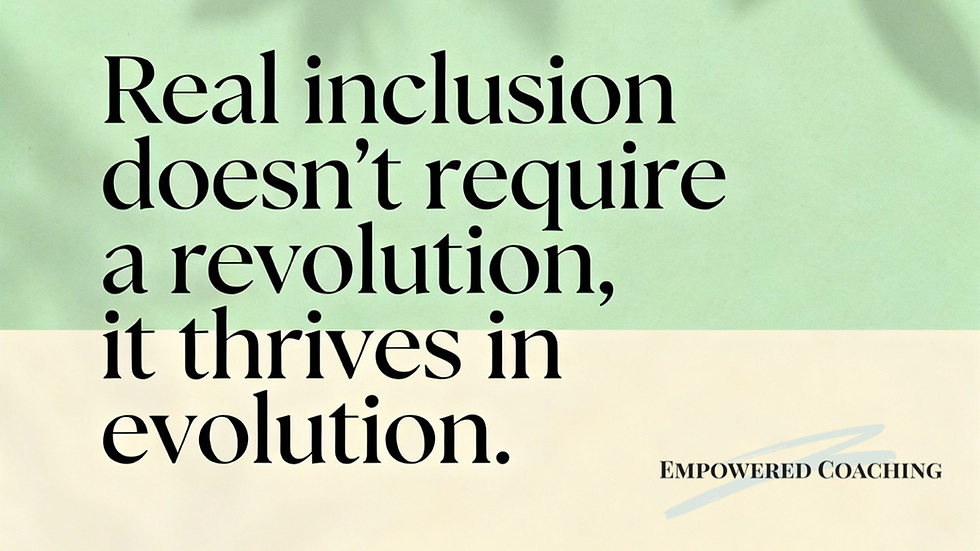Inclusion Doesn’t Need Reinventing – It Thrives in Evolution
- Emma Redman

- Oct 25, 2025
- 2 min read
This week brought a real curveball moment for me. I hosted a webinar for Enterprise Oxfordshire - something that pushed me right outside my comfort zone. Public speaking, especially online, has never been easy for me, but it connects deeply with what I care about most: helping people grow, both personally and professionally.
That passion runs close to home. As a parent of neurodiverse children, I’ve seen how easily difference can be misunderstood. Too often, society frames it as something to fix rather than something to understand. Those ideas still echo across classrooms, workplaces, and leadership teams. My work has always been about challenging that - creating spaces where people can be themselves and thrive, not just survive.
Being neurodiverse myself, I don’t see my differences as a problem to fix or something that needs special accommodation compared to my peers. I believe that a truly inclusive culture gives everyone the freedom to work with autonomy, manage their own needs, and self-regulate in a way that feels natural to them. That’s what inclusion should look like - an environment where people can function at their best without being made to feel like an exception.
One reflection from the webinar really stuck with me. Real inclusion doesn’t require a revolution - it thrives in evolution. Many organisations already have adaptable practices; they just don’t always recognise them. Inclusion isn’t about radical change. It’s about taking what already works and making small, intentional shifts that support everyone, not just a select few.
That’s also the heart of managing up - a topic we touched on during the session. Managing up isn’t about pushing back or forcing change. It’s about enhancing what’s already there, reshaping conversations, and building mutual understanding. Change doesn’t begin with an overhaul. It starts with one small, human step at a time.
I’ve created a short, confidential questionnaire to understand how people really feel about inclusion and diversity at work. I’m doing this research because I truly recognise that it’s not a one-size-fits-all situation. Every organisation has its own challenges, pressures, and priorities. I want to gather real insights, not generic statistics designed to prove a point.
I’m doing this because I live it as well as work in it. My experiences as both a neurodiverse professional and a practitioner have shown me that inclusion only works when it’s grounded in real life - when it reflects people, not policy.
It’s not for marketing or mailing lists. I’m not collecting emails or tracking responses. It’s simply a way to listen - to see what inclusion looks like through your eyes, and what gets in the way of making it real.
If you can spare two minutes, I’d love your perspective.
Your insights will help shape future work that keeps inclusion practical, human, and achievable - because small steps forward are what create real change.
Look forward to hearing from you
Emma
xx




Comments